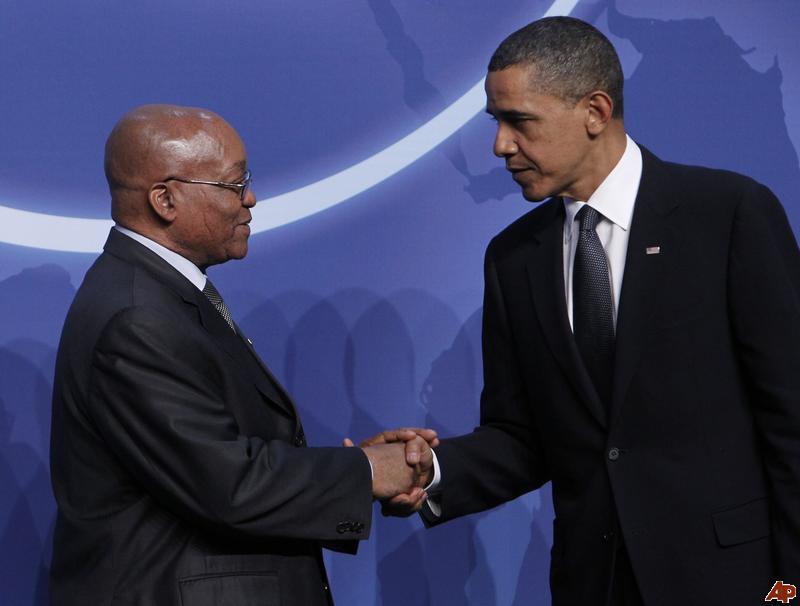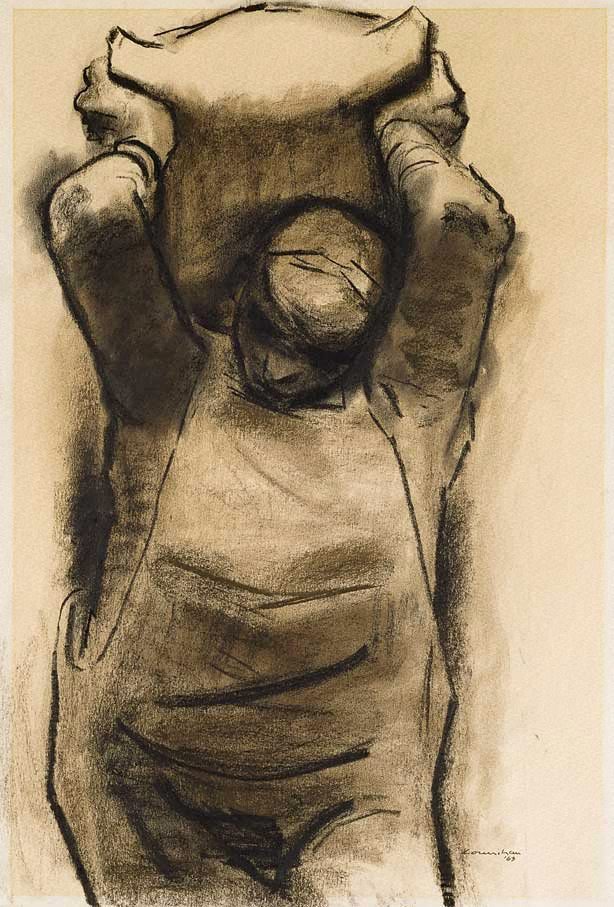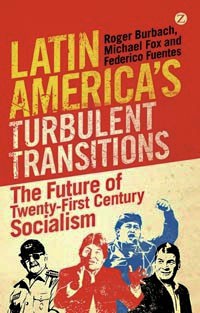China
Senior Chinese communist: `Industrial civilisation is unsustainable'

A group of volunteers wave green handkerchiefs as they ride their bicycles in Beijing on November
BRICS: ‘Anti-imperialist’ or ‘sub-imperialist’?

South African President Jacob Zuma and friend.
The problem of relative privilege in the working class

"Waterside worker', by Noel Counihan, 1963.
By Chris Slee
March 18, 2013 – Links International Journal of Socialist Renewal -- In his article entitled “Is there a labour aristocracy in Australia?” (published in the Socialist Alternative magazine, Marxist Left Review) Tom Bramble criticises the concept of the “labour aristocracy” on a number of grounds.

Whose turn to carve?
March 18, 2013 -- In Durban, South Africa, five heads of state meet on March 26-27, 2013, to assure the rest of Africa that their countries’ corporations are better investors in infrastructure, mining, oil and agriculture than the traditional European and US multinationals. The Brazil-Russia-India-China-South Africa (BRICS) summit will also include 16 heads of state from Africa, including some notorious tyrants. A new $50 billion bank will probably be launched.
Is population control an anti-capitalist policy?

Poor peasants are to blame?
US economy: A major attack on labour rights

President Barack Obama bragged how he had saved the US auto industry by handing out billions in taxpayers’ money to the auto bosses, and even establishing what amounted to temporary federal ownership of the old General Motors plants when GM went bankrupt during the “Great Recession”.
By Sam Williams
December 23, 2012 -- A Critique of Crisis Theory, posted at Links International Journal of Socialist Journal with permission -- December 11, 2012, brought news of a major new attack on basic labour rights in the United States. The following day, the Federal Reserve [the US central bank] announced new inflationary measures designed to end the economic stagnation the US economy has been mired in since the “Great Recession” bottomed out in July 2009.
Pablo Solon: Strike four for climate change negotiations -- rethinking our strategies

Super Typhoon Bopha taken on December 2 from the International Space Station, as the storm bore down on the Philippines with winds of 135 miles per hour. Photo by NASA.
By Pablo Solon
December 18, 2012 -- Hoy es Todavia -- In baseball, when you have three strikes, you are out. In the climate change negotiations we already have had four strikes. The climate talks in Copenhagen, Cancun, Durban and now Doha. Four attempts and each of the results were bigger failures than the last. The emission reductions should have been at least 40 to 50% until 2020 based on 1990 levels. Four COPs later, the current numbers are down to a measly 13 to 18%. We are now well on our way to a global temperature increase of 4º to 8ºC.
“The perfect is the enemy of the good” is what some UN negotiators say. To which we can reply: “When our house is burning down, the worst thing you can do is lie to us.”
It’s time to rethink what is happening and try to find new strategies to avoid a global catastrophe.
No lack of evidence
Paul Le Blanc: International conference in China on Lenin’s thought

Paul Le Blanc presents the keynote address to the international conference on “Lenin’s thought in the 21st century: interpretation and its value”, held October 20-22, 2012.
[Read more by (and about) Paul Le Blanc HERE and more on Lenin HERE.]
By Paul Le Blanc
BRICS bloc’s rising ‘sub-imperialism’: the latest threat to people and planet?

President Dilma Rousseff of Brazil, Russian President Dimitry Medvedev, India


